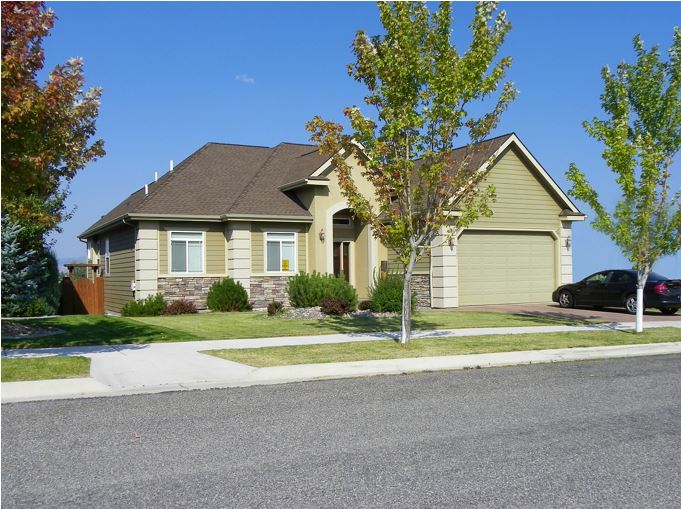Experts in the real estate market are noting an interesting phenomenon that has emerged in the last few years – that of the emergence of institutionalized investor buyers. These investors are pushing up the prices of properties pointing to the possibility that the sector is booming. However, industry pundits are concerned that their activities could be putting affordable homes out of reach of the average family looking to purchase their starter house.
Since a few years ago, several neighborhoods in the southern states have been selling out due to the foreclosure crisis. Communities that once thrived with well-to-do residents are now displaying lack of maintenance, their boarded-up windows and doors clearly indicating that their owners had sold them in a hurry, possibly because they couldn’t keep up with bank payments.
 Large-Scale Investors are Buying Up Properties Quickly
Large-Scale Investors are Buying Up Properties Quickly
Players of the real estate market have always been small individual investors or partnership firms. However, all that changed around the time of the recession in the housing market in the year 2008 as explained in detail by this feature on Investopedia. As prices of homes plunged, large-scale institutions started buying up properties quickly. Estimates place the figures at two million homes put up for sale by residents who had lived in the neighborhoods for decades.
By the time the Great Recession came to an end and right up to the present day, investors are flooding the residential real estate market with capital. Statistics gathered in 2018 reveal that close to 20% of the starter homes in the country were bought out by investor buyers. These homes are typically considered to be the cheapest properties in most neighborhoods.
Real Estate Investors Have Different Strategies
Non-resident buyers purchase homes using different investment strategies as revealed by the folks at Wrightwood Homes. For instance:
- Fixers and flippers buy cheap homes and renovate them. Once the houses are in good condition and ready to move in, the investors then sell them to potential residents.
- The property may also be purchased by other individual investors who intend to rent it out to long-term occupants. Alternatively, the buyers may intend to get back their investment by renting it out to temporary Airbnb visitors or any other people looking to lease for a few months at a time. Such buyers typically reside in other locations.
- Large-scale institutions may buy properties and lease them out after investing funds for their renovation. Such agencies typically own several homes in specific neighborhoods.
- Some properties are also purchased by investors who simply hold on to the houses until they appreciate in value. Once the house reaches a particular price level, it could come back in the market.
 The Real Estate Arena is Now a Flourishing Industry
The Real Estate Arena is Now a Flourishing Industry
The contemporary real estate market does not just include buyers, flippers, and sellers, but is a complete industry in itself. Flippers and investors looking for funds to purchase properties turn to lenders who, in turn, create a portfolio of investment opportunities. People wishing to put their money into property can work through these organizations that offer equity in their rental portfolio. Then, there is a large network of brokers who connect the different players. And, real estate traders who buy and sell properties without anyone occupying the homes in between sales.
Properties Are Available Online
Technology and online transactions have added to the growth of the industry. Real estate websites have listings of thousands of homes that are open for buying. Investors can check through the homes on sale and pick the ones they think are lucrative buys. The companies running the sites offer the convenience of agents who take care of the groundwork. They assess the properties and their conditions by vetting them out carefully and providing valuable details to their clients.
In today’s times, putting money in the real estate market is similar to investing on the stock exchange. In place of shares and bonds, people can invest their capital in houses.
Institutionalized Investors Use Effective Methods to Buy Out Homes
Buying out homes at low cost is an easy process that large-scale investors have perfected. Here are some of the most effective strategies.

- Finding cheap properties made available through online auction portals. Buyers typically pay a percentage to the site as outlined by this article on The Balance.
- Buying homes in bulk from banks who have a list of properties for sale that they have acquired via foreclosures. Banks are open to accepting deals from investors looking to buy multiple properties.
- Bidding for houses at auctions conducted by trustees and sheriffs. Such properties are typically sold without any repairs or updating. Buyers can expect to put funds into renovating and restoring the property into a ready-to-move condition. Investors may also have to cover an liens, unpaid taxes, or neighborhood dues, once they take over ownership.
- Scouting around neighborhoods to identify houses in various stages of disrepair. Their owners are usually low on funds and looking to sell quickly.
- Contacting homeowners and offering fast deals with payouts in cash. Most people snap up the deals.
- Contacting random residents in the communities and asking if they know any neighbors who are looking to sell.
- Many residents often opt to liquidate their homes when they see that many of the other properties are selling quickly to large-institution investors. The possibility of falling estate prices forces owners to sell while they can still get good rates.
- The changing face of the community forces existing residents to consider moving. New, unknown, and unfamiliar people coming into the neighborhood creates unease.
Large-Scale Buyouts Could be Good for the Neighborhood
Some experts may argue that high-end buyers investing in multiple homes in a neighborhood raises the property rates quickly. There are also concerns that families looking for a starter home to put down roots may not be able to find affordable housing.
On the flip side, large investors can pump funds into the community and rescue it from disrepair and lack of maintenance. Renovations around the locality improves curb appeal and attracts young homeowners who are interested in living there. As for older residents looking for good deals when they need the money, cash offers may be the perfect solution.
Institutionalized investing in the real estate market is changing the face of neighborhoods across the country with facelifts and the entry of newer, younger occupants that are ready to start families. Whether or not that indicates a positive or negative evolution of the market, remains to be seen.

